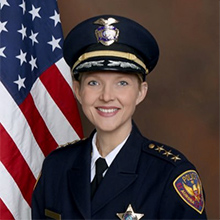
The culture of an organization is a living and breathing organism. You cannot see it in the tangible sense but you can feel the gravitational pull when someone acts outside of the norm.
We spend most of our time synchronizing our actions and emulating social cues so we don’t draw attention to ourselves. This is especially true when we enter into a new environment like a new job or a foreign place for the first time. If you are new, the last thing you want to do is stand out or be too different so you find ways to adapt and blend inconspicuously so as not to reveal too quickly how weird you actually are.
This is a survival technique and it’s not always a bad thing because it allows time for us to transition into a new environment incrementally. It’s very primitive because adapting is what we are instinctually hard-wired to do.
The problem is when we focus all of our energy on adapting so much that we lose our personhood and we blend in to the extent that our individuality is unrecognizable. The desperation to fit it often supersedes our belief-system and we do things we wouldn’t normally do out of fear of ridicule.
We have the psychological desire to fit in and if we don’t constantly fight to go against the grain, we will find ourselves ingrained in something that is unrecognizable. Over time, we will discover that we’ve lost ourselves and we aren’t quite sure how it happened.
In her book, “Daring Greatly“, Brene Brown wrote about the difference between fitting in and belonging. Fitting in is essentially giving up your individuality and your authenticity. Belonging is being exactly who you are and feeling as though you are accepted in your environment.
We all want to feel safe and accepted but it’s easy to confuse that feeling of security by adapting the “group think”. Feeling truly safe in an organization means that you can be the same person you are at home as you are at work. You don’t have to try and remember who to be based on where you are.
An organization that encourages individuality by way of respectful dissent and diversity of thought as part of their culture are the organizations that flourish. Leaders should set the vision and the mission but allow their people to align to it in a way that is unique to them.
It might seem impossible to do that in a profession like policing where uniformity and para-military mindset are the norm, but it doesn’t have to be. In policing, we must be aligned to the constitution of the United States of America and bound by the laws we enforce. Nowhere does it stipulate that mirrored sunglasses and attitude have to be the method used to carry out the mission.
When police officers are given permission to use their humor, empathy, compassion and individual talents while carrying out their duties, the job still gets done. In fact, it gets done better because authenticity and trust are the foundation of legitimacy.
By allowing the people in your organization to use their unique talents and skills to fulfill the mission, you are creating an environment where everyone belongs.
When people feel as though they belong, they are happier and more productive people and they walk around transferring that good stuff to others.
This post was originally published on November 11, 2016 on Chief Ziman’s blog.